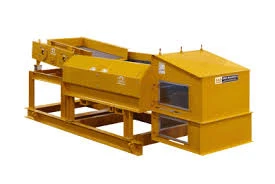

des . 10, 2024 18:50 Back to list
How Do You Dispose of Electronics Responsibly?
In today's fast-paced technological landscape, electronic devices have become indispensable in our daily lives. From smartphones to laptops, these gadgets enhance our connectivity and productivity. However, the rapid turnover of electronic products also leads to a growing concern what to do with old and obsolete devices? Proper disposal of electronics is crucial to minimize environmental impact and promote sustainability.
The Importance of Responsible E-Waste Disposal
Electronics contain a range of materials, some of which can be hazardous if not disposed of correctly. Heavy metals like lead, mercury, and cadmium are commonly found in devices such as televisions, computers, and batteries. When these items are thrown away in regular trash, they can end up in landfills, potentially leaching harmful substances into the soil and groundwater. Additionally, improper disposal can contribute to air pollution when electronics are incinerated. Therefore, effective e-waste management is essential for protecting the environment and human health.
Steps to Dispose of Electronics Responsibly
1. Assess the Device's Condition Before disposing of an electronic device, evaluate whether it can be repaired, recycled, or donated. If it is still functional, consider donating it to local schools, charities, or community centers. Many organizations accept working devices to bridge the digital divide for those who cannot afford them.
2. Recycle When Possible If the device is beyond repair, recycling is the next best option. Look for e-waste recycling programs in your area. Many cities have designated drop-off locations or events specifically for hazardous waste, including electronics. These programs ensure that valuable materials are recovered while hazardous substances are handled safely.

3. Manufacturer Take-back Programs Many electronics manufacturers and retailers offer take-back programs that allow consumers to return their old devices. Brands like Apple, Best Buy, and Dell have established systems for customers to recycle their products responsibly. This not only keeps harmful materials out of landfills but also promotes the recycling of valuable metals and components.
4. Data Security Before disposing of any electronic device, it’s crucial to protect your personal information. Ensure that you back up any data you want to keep, and then perform a factory reset to delete all information. For added security, consider using software that securely wipes your data beyond recovery, especially for devices that stored sensitive information.
5. Check for Local Regulations E-waste disposal regulations vary by locality. Some regions have specific laws regarding the disposal of electronics, so it's advisable to check with local authorities or environmental agencies. Familiarizing yourself with these regulations ensures compliance and promotes responsible practices in your community.
6. Educate Others One of the most effective ways to promote responsible electronic disposal is by educating friends, family, and colleagues. Share information about the importance of recycling e-waste and highlight local resources for proper disposal. Encouraging others to take part in these practices can help build a culture of sustainability.
Conclusion
The disposal of electronics is an increasingly pressing issue in our modern world. As we continue to innovate and produce new devices, the responsibility falls on each of us to dispose of e-waste in a manner that protects the environment and promotes sustainability. By evaluating the condition of our devices, utilizing recycling programs, ensuring data security, and adhering to local regulations, we can significantly reduce the impact of e-waste.
It’s essential to recognize that responsible electronic disposal is not just an individual responsibility—it’s a collective effort that can lead to a cleaner, healthier planet. As consumers, our choices make a difference. By taking mindful steps towards disposal, we not only protect our environment but also contribute to a circular economy where materials are reused and repurposed. Let’s commit to responsible e-waste disposal, ensuring that our digital footprint is sustainable for generations to come.
Latest news
Troubleshooting Common Eddy Separator Problems
NewsJul.04,2025
The Role of Metal Recycling Plants in Circular Economy
NewsJul.04,2025
The Impact of Recycling Line Pickers on Waste Management Costs
NewsJul.04,2025
Safety Features Every Metal Shredder Should Have
NewsJul.04,2025
How Industrial Shredders Improve Waste Management Systems
NewsJul.04,2025
How Cable Granulators Contribute to Sustainable Recycling
NewsJul.04,2025